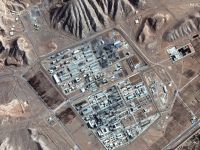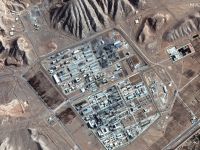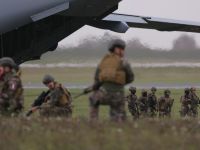The Internet has finally opened new horizons to at least some of the isolated people of Iraq who have lived for the past decade under sanctions and government curbs on contact with the outside world.
Iraq's first Internet center, which opened in the capital on July 27th, is crammed with customers wanting to surf the Web, send e-mails or just to find out about the IT revolution which has left the country far behind.
"Iraqis have finally discovered the meaning of the term 'global village'", said Bilal Akram, manager of the center on Saadoun Avenue, a main shopping area of downtown Baghdad.
"All the sites are accessible, except those which are contrary to the Muslim religion, those which show pornographic films that pollute the spirit and destroy society," he said.
Many of the customers are teachers or professionals from the middle class, which has been impoverished by the sanctions in force since Iraq's 1990 invasion of Kuwait and starved of information on developments around the world.
"The embargo has deprived me of books and Arabic or international newspapers. But now I can find out about artistic, cultural and scientific news," said Amal Mohammad, a retired teacher who devotes an hour each week to the Internet.
"Even if we received these newspapers in Baghdad, I would not be able to afford them. The center serves to ease the isolation that deprives us of the fundamental right to follow scientific advances," said the 50-year-old woman.
Charges at the center, set up in a two-storey building, are modest by international standards: 2,000 dinars (one dollar) an hour, while e-mail access costs an extra 50 dollars a year.
But that is still too high for most of the 22 million population of Iraq, where gross domestic product per capita has plunged to 250 dollars compared to 3,100 dollars a decade ago, according to UN estimates.
And those who can afford it are not fully satisfied.
"The center is small and there are too many visitors," complained 28-year-old engineer Zaid Samir. The transport and communication ministry, which supervises the center, "would make a lot more money if they made it bigger".
Also, "instead of spending their time in coffee shops doing nothing, young people could come here to catch up with the knowledge we've been deprived of for the past 10 years," said Samir.
The center has just 18 computers, five reserved for e-mail use and the rest for the World Wide Web.
Transport and Communication Minister Ahmad Murtada has said three other Internet centers will soon be opened in Baghdad, adding that Iraqi ministries and government departments have already been hooked up.
Amar Abel Amir, an 18-year-old student, prides himself on having been one of the first customers.
"I come here twice a day, in the morning and again in the evening, and I would love to be able to spend more time to find out what's happening in the world and discover new games," he said.
The launch of the Internet in Iraq comes two years after the government started to authorize direct-dial international telephone calls without having to go through an operator.
But the telecoms sector, badly damaged in the 1991 Gulf War over Kuwait, has still not fully recovered.
In November 1999, the authorities opened up further, embarking on the first phase of a project to allow Iraqis to tune in to satellite TV stations through a paid service.
Travel abroad, however, remains exorbitant, costing 400,000 dinars (200 dollars) per person just for an exit visa -- BAGHDAD (AFP)
© 2000 Al Bawaba (www.albawaba.com)







